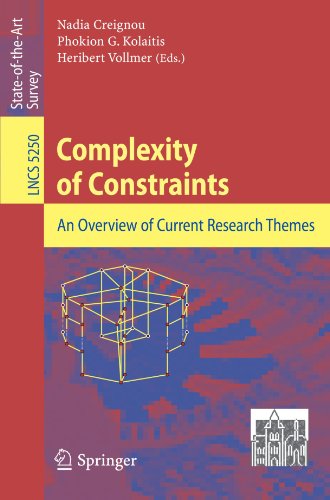

Most ebook files are in PDF format, so you can easily read them using various software such as Foxit Reader or directly on the Google Chrome browser.
Some ebook files are released by publishers in other formats such as .awz, .mobi, .epub, .fb2, etc. You may need to install specific software to read these formats on mobile/PC, such as Calibre.
Please read the tutorial at this link: https://ebookbell.com/faq
We offer FREE conversion to the popular formats you request; however, this may take some time. Therefore, right after payment, please email us, and we will try to provide the service as quickly as possible.
For some exceptional file formats or broken links (if any), please refrain from opening any disputes. Instead, email us first, and we will try to assist within a maximum of 6 hours.
EbookBell Team

4.4
82 reviewsNowadays constraint satisfaction problems (CSPs) are ubiquitous in many different areas of computer science, from artificial intelligence and database systems to circuit design, network optimization, and theory of programming languages. Consequently, it is important to analyze and pinpoint the computational complexity of certain algorithmic tasks related to constraint satisfaction. The complexity-theoretic results of these tasks may have a direct impact on, for instance, the design and processing of database query languages, or strategies in data-mining, or the design and implementation of planners.
This state-of-the-art survey contains the papers that were invited by the organizers after conclusion of an International Dagstuhl-Seminar on Complexity of Constraints, held in Dagstuhl Castle, Germany, in October 2006. A number of speakers were solicited to write surveys presenting the state of the art in their area of expertise. These contributions were peer-reviewed by experts in the field and revised before they were collated to the 9 papers of this volume. In addition, the volume contains a reprint of a survey by Kolaitis and Vardi on the logical approach to constraint satisfaction that first appeared in 'Finite Model Theory and its Applications', published by Springer in 2007.